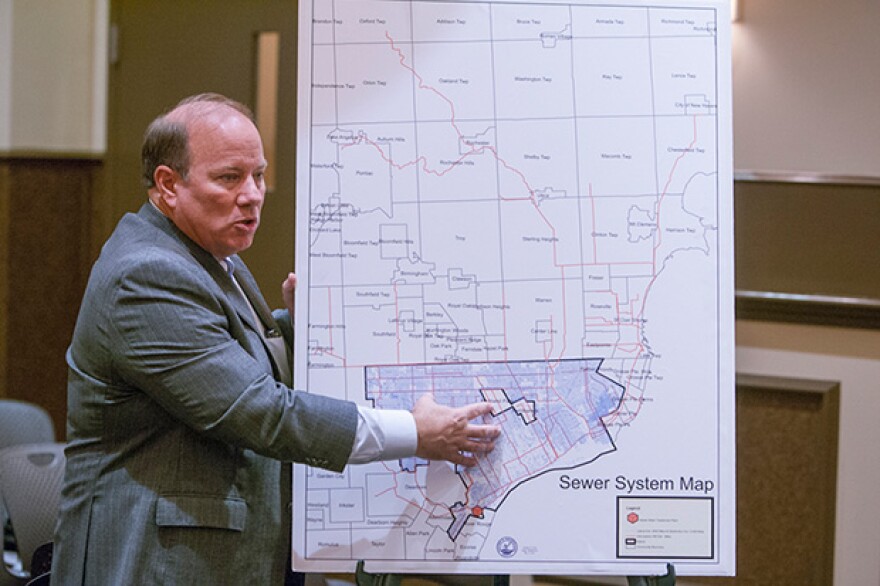Detroit officials say they’re confident the fledgling Great Lakes Water Authority will work out—despite concerns and complaints from some suburban officials questioning its future.
The GLWA gives regional players a larger role in running Detroit’s city-owned water system, which services some 4 million customers in southeast Michigan.
It's a key part of Detroit’s bankruptcy settlement. The deal is premised on the regional authority leasing and operating the Detroit water department’s assets outside city limits, for $50 million per year in “rent.”
Officials from the State of Michigan, Detroit, and Wayne, Oakland and Macomb county executives all signed a Memorandum of Understanding formalizing the GLWA late last year, and the board has started meeting--but the Authority is still in the midst of a 200-day due diligence period.
Robert Daddow, Deputy Oakland County Executive and GLWA chairman, said the Authority’s future is in doubt because of declining water usage, and a “lack of current audited financial data” from the Detroit water department. Those combined factors mean Detroit might not be able to meet some of the terms outlined in the MOU.
“The MOU clearly states that a lease shall not be entered into if the payment in consideration for the Lease would cause the Systems to be unable to provide a reasonable level of service, satisfy its debt obligations and adhere to the rate structure set forth in the Plan of Adjustment,” Daddow said in a statement this week. “[The Detroit water department] must resolve the revenue problem if a lease is to be entered into.”
The reduced water volumes, in particular, mean that it will be hard to meet those terms without “significant rate increases,” Daddow said, noting that the MOU states: “No Lease shall be entered into if the payment…would cause the Systems to be unable to provide a reasonable level of service, satisfy its debt obligations, and adhere to the rate structure set forth in the Plan of Adjustment [Detroit’s court-approved bankruptcy restructuring plan].”
The GLWA was sold to the public on the premise that rate increases would be capped at 4% annually, but officials now say that “rates” actually meant “total budget revenues”—so if water usage goes down, rates need to go up to maintain a system largely made up of fixed costs.
Detroit officials, though, suggest these stumbling blocks will be resolved in ongoing negotiations.
Mayor Mike Duggan admits there have been some problems pulling everything together, but expressed confidence that a lease will get signed before the July 1 deadline.
“It’s a very complicated transaction, a lot of people are working hard, and I think it’s going to be fine,” Duggan said.
Similarly, in remarks this week, former Detroit emergency manager Kevyn Orr said that much like any other merger or business transaction, there’s an inevitable period of “true-ups” and further negotiations that the GLWA is going through right now.
But Orr said there “should be enough value there” to get everyone to cooperate in the end.
He said suburban communities should benefit from avoiding Detroit’s historic problems collecting bills, while the city becomes a wholesale customer of the Authority while retaining ownership of the system and a big role in governance.
“The core benefits of the transaction are still there, [but] the details need to be worked out,” Orr said.







